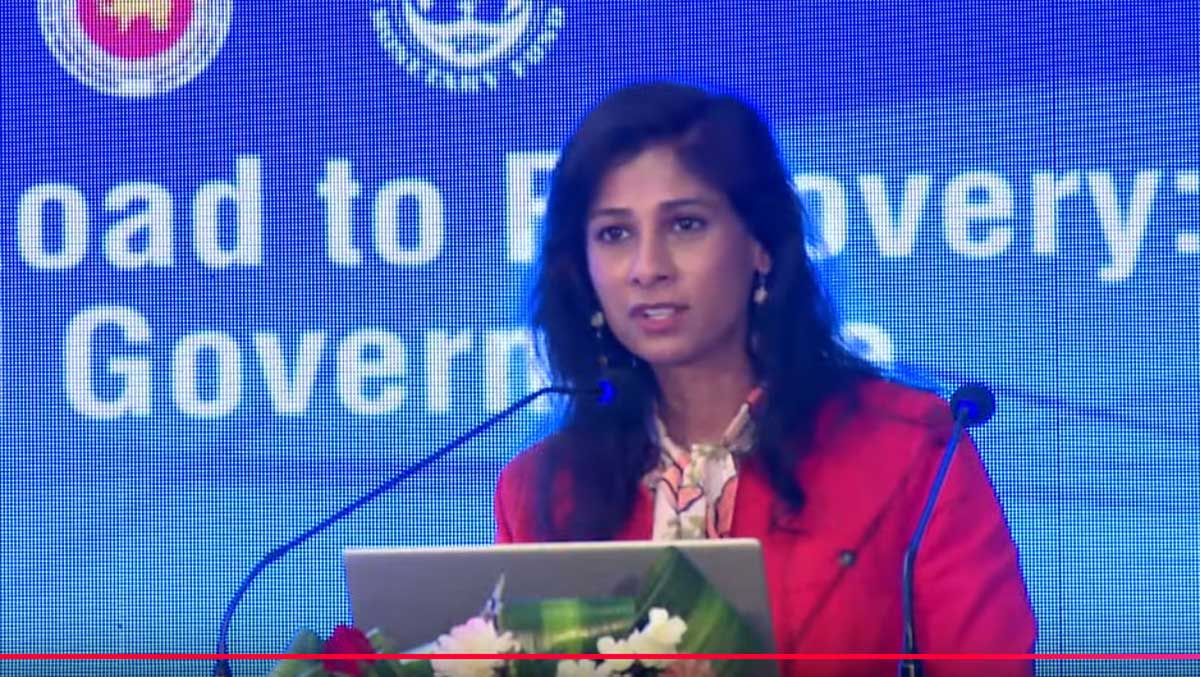ECONOMYNEXT – Sri Lanka’s complex debt restructure which involved state contingent instruments and no principal reductions on domestic debt held by banks and pension debt will speed up future resolutions, a top International Monetary Fund official said.
“The Sri Lankan debt restructuring experience provides several lessons that will help make the process simpler for other countries that need restructuring in the future,” IMF’s First Deputy Managing Director Gita Gopinath said in a forum in Colombo.
“Sri Lanka’s experience better illuminated the trade-offs in setting debt targets and directly led to the development of improved methodologies for evaluating state contingent features in debt contracts.
“It helped creditors learn how to improve coordination and gave them new instrument designs to contemplate. Together with other recent restructuring cases, it helped motivate important reforms to IMF’s debt policies.”
In Sri Lanka’s restructure, a new instrument where a GDP link (a state contingent feature) was linked to the underlying bond and not a separate warrant was started.
“A large share of Sri Lanka’s debt is domestic,” Gopinath said. “The authorities recognized that external debt relief by itself would be unlikely to restore debt sustainability and domestic debt needed to be part of the restructuring effort.
“This had to be tackled carefully because of the significant exposure of Sri Lanka’s domestic financial sector, the central bank and the public pensions vehicle to government debt.
“To preserve financial and social stability, the authorities avoided nominal debt reductions and focused on lowering interest rates and lengthening maturities.”
Avoiding restructure of private, bank and insurance company debt led to rush to buy bonds as soon as the move was announced, leading to about 1000 basis point fall in yields in a matter of minutes.
Sri Lanka also had to negotiate separately with China which had not been a big foreign creditor before the current wave of defaults.
The central bank also provided monetary stability appreciating the currency back to 300 from the crisis low of 300 restoring some of the lost wages of the public and savings, allowing some prices, especially traded goods to fall.
Sri Lanka defaulted on its external debt in 2022 after several year of aggressive macro-economic policy to boost growth, involving inflationary rate cuts.
Sri Lanka has been in 16 IMF programs and must take care not to allow a repeat policy reversal, and a default, Gopinath said.
(Colombo/June16/2025)
